Uncategorized
-
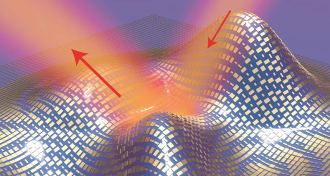 Materials Science
Materials ScienceInvisibility cloaks slim down
A new invisibility cloak offers more stealth in a thinner package.
By Andrew Grant -
 Science & Society
Science & SocietyRocky families, not same-sex parents, blamed for kids’ troubles in adulthood
Range of adult problems linked to childhood family changes, not gay parents.
By Bruce Bower -
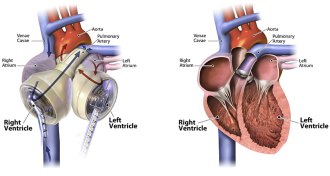 Health & Medicine
Health & MedicineIn 1965, hopes were high for artificial hearts
Developing artificial hearts took longer than expected, and improved devices are still under investigation.
-
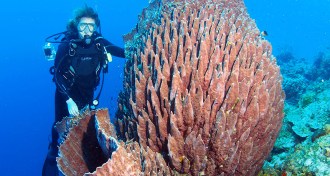 Oceans
OceansGiant barrel sponges are hijacking Florida’s coral reefs
Giant barrel sponges are gradually taking over and threatening Florida’s coral reefs, a new census suggests.
-
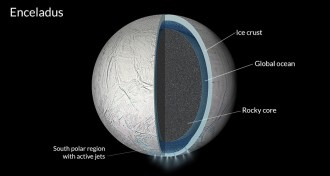 Planetary Science
Planetary ScienceEnceladus’ ocean goes global
A subsurface liquid water ocean envelops Saturn’s icy moon Enceladus.
-
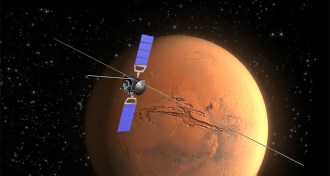 Planetary Science
Planetary ScienceMars’ ionosphere mystery explained
A decades-old disagreement between the Viking landers and spacecraft buzzing around Mars might come down to what time of day each was investigating the Red Planet’s ionosphere.
-

-
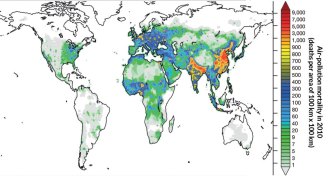 Environment
EnvironmentHome fires, farm fumes are leading causes of air-pollution deaths
Deadly air pollution comes from surprising sources, but toxicity of different types is still up in the air.
By Beth Mole -
 Animals
AnimalsDogs flub problem-solving test
Confronting a tough task, dogs are more likely than wolves to give up and gaze at a human
By Susan Milius -
 Animals
AnimalsFor a female mosquito, the wrong guy can mean no babies
Male Asian tiger mosquitoes leave female yellow fever mosquitoes uninterested in mating with their own species, a process known as “satyrization.”
-
 Science & Society
Science & SocietyShort memory can be good strategy
Game theory reveals that there’s a limit to the effectiveness of relying on prior results to predict competitors’ behavior.
By Andrew Grant -
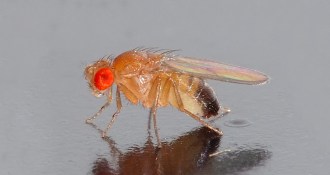 Genetics
GeneticsEvolution caught red-handed
Scientists have named a new gene on the fruit fly Y chromosome “flagrante delicto Y.”